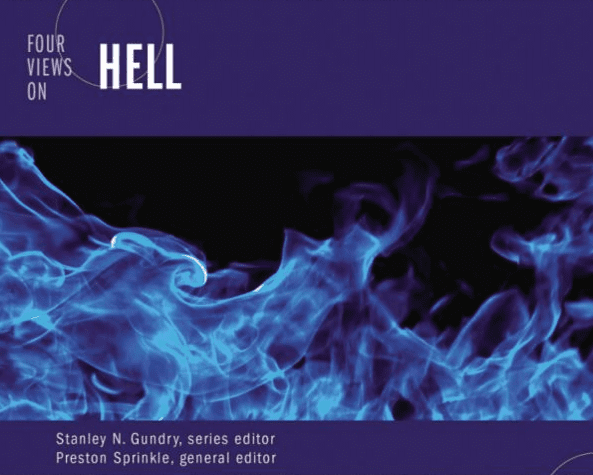 In our series on the exceptional anthology, Rethinking Hell: Readings in Evangelical Conditionalism (ed. C.M. Date, G.G. Stump, J.W. Anderson), we turn now to one of the quieter but influential thinkers on the topic, Stephen Travis. I met Stephen in 1982 in Cambridge England and have both admired and read his work since those days. His writing’s focus makes him a bit of an “eschatologian,” and one of his themes has always been conditional immortality/conditionalism/annihilationism, whichever words you prefer.
In our series on the exceptional anthology, Rethinking Hell: Readings in Evangelical Conditionalism (ed. C.M. Date, G.G. Stump, J.W. Anderson), we turn now to one of the quieter but influential thinkers on the topic, Stephen Travis. I met Stephen in 1982 in Cambridge England and have both admired and read his work since those days. His writing’s focus makes him a bit of an “eschatologian,” and one of his themes has always been conditional immortality/conditionalism/annihilationism, whichever words you prefer.
Which of his reasons listed below is the most compelling and which is the least compelling?
His essay is called “The Nature of Final Destiny,” and is excerpted from his book I Believe in the Second Coming (or, Christ Will Come Again). After saying there have been two options — eternal conscious punishment/torment or conditional immortality — Travis observes this: “In my view the New Testament does not express itself clearly for one or the other of these options” (45).
Travis contends that Jesus spends more time talking about how to avoid exclusion from God than about the form of that exclusion; he talks about Gehenna but does not describe it; Jesus’ language about the destiny of the wicked is “allusive rather than descriptive” (45) — the parable of Jesus is a Jewish tale, the terms death and destruction and corruption don’t clarify much. Jesus didn’t want people to decide on the basis of the temperature of hell or its length, but because of God and relationship to God. Travis also argues that if the essence of heaven is a relationship then the essence of hell is a non-relationship. The details become irrelevant.
On conditional immortality, Travis agrees with it for the following six reasons:
1. Immortality of the soul is a Greek, not Bible, idea. Immortality is conditional in the Bible.
2. Fire and destruction terms suggest annihilation.
3. Eternal punishment might mean permanence and irreversible.
4. NT language is often picture language: if hell can be both darkness and fire, then we ought to be careful about inferring too much.
5. Eternal conscious punishment? “serves no useful purpose, and therefore exhibits a vindictiveness incompatible with the love of God in Christ” (47).
6. ECT requires the eternal existence of heaven and hell alongside one another. How can God be “all in all” if this is the case?











